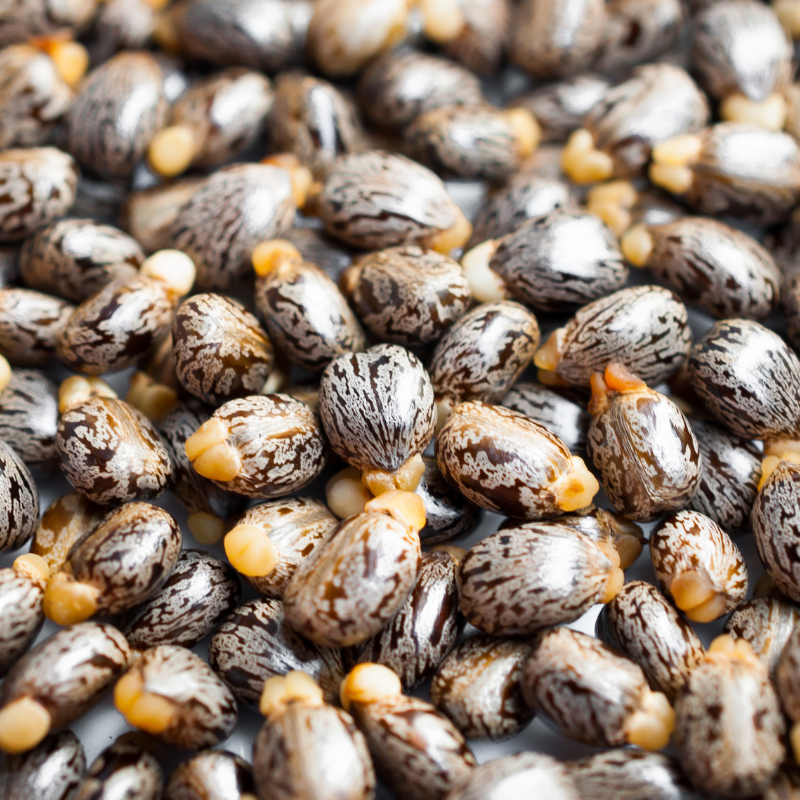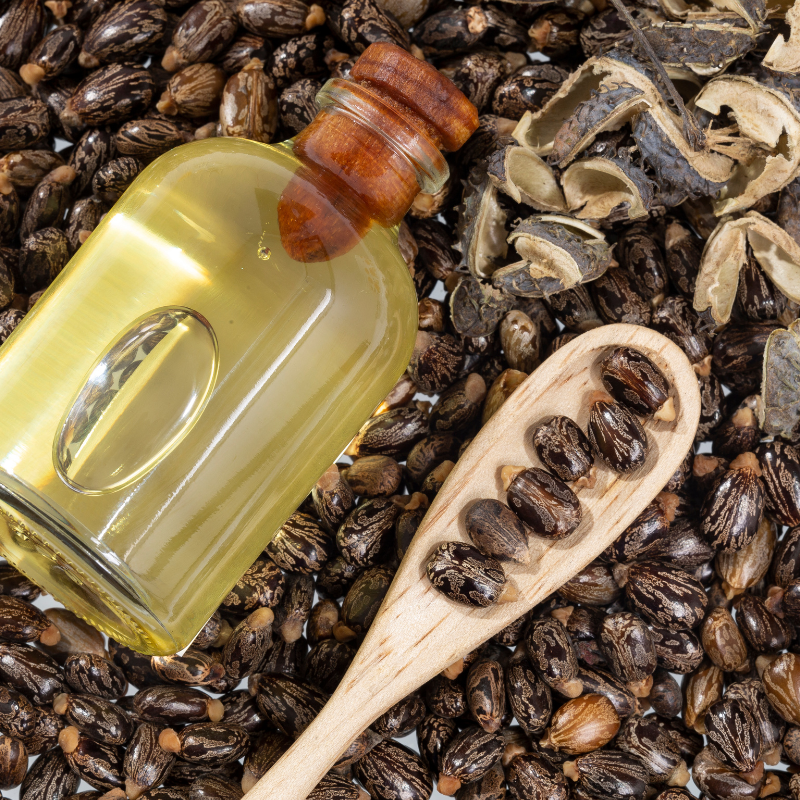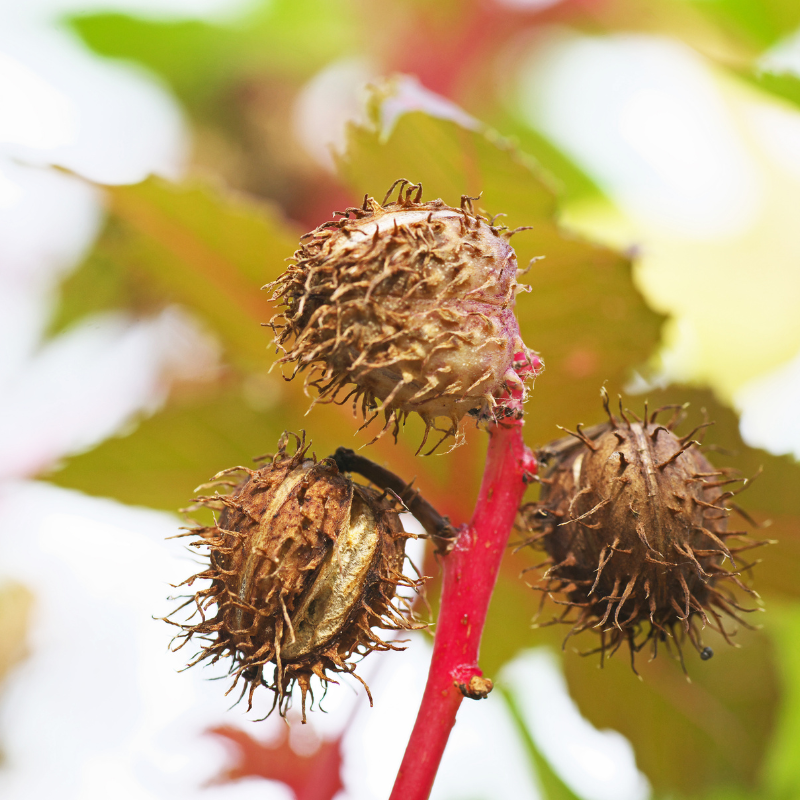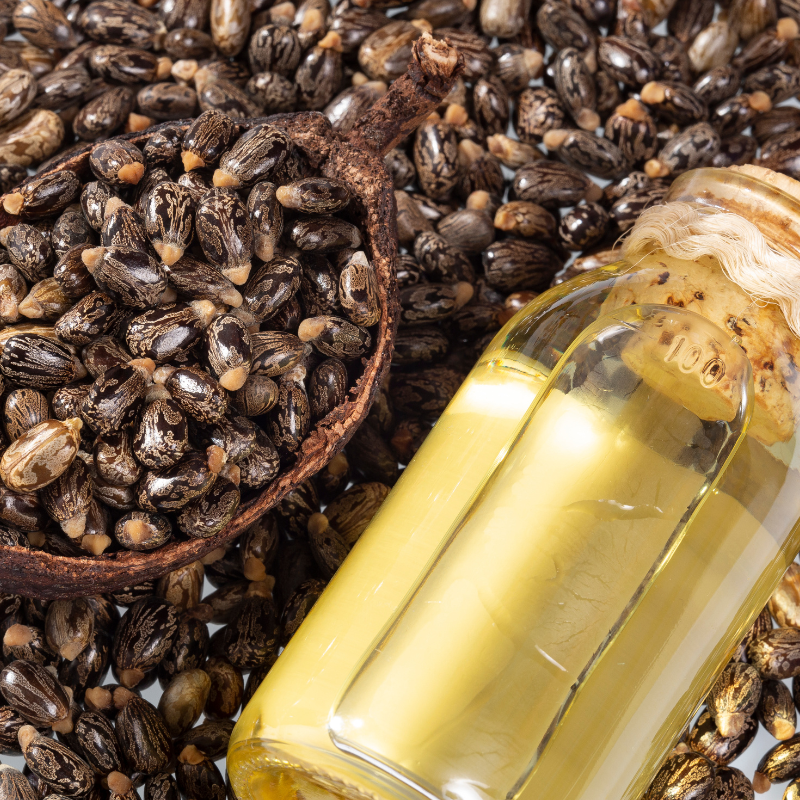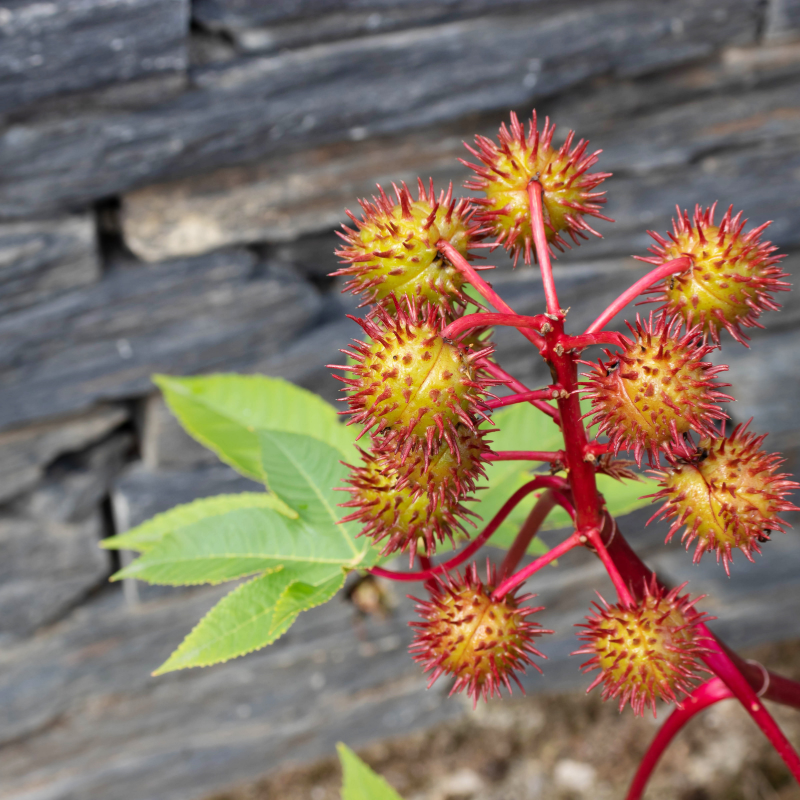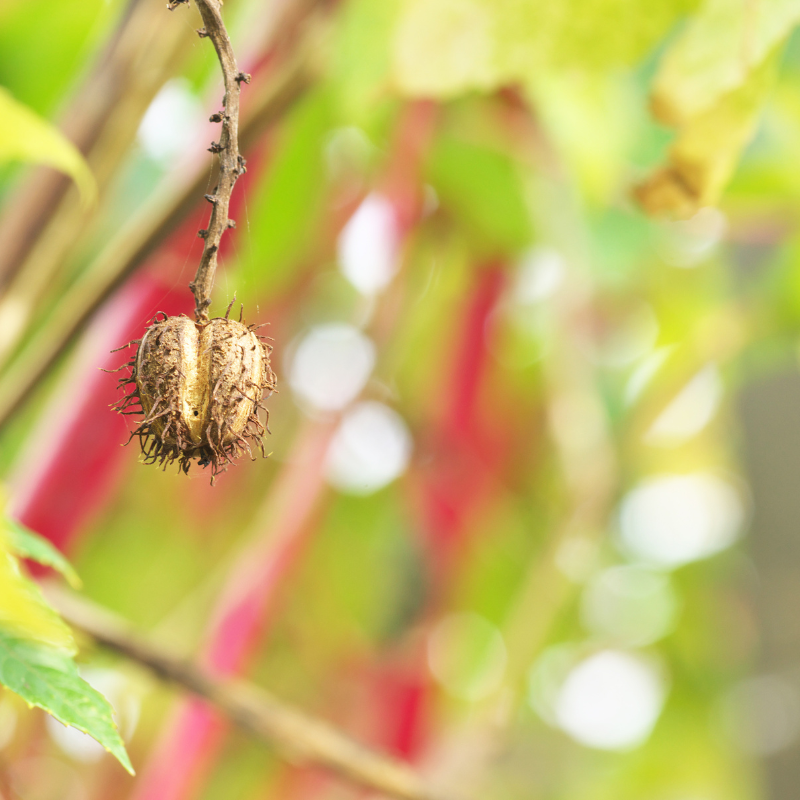Ricinus communis (Castor Bean, Castor Oil Plant) Seeds
Ricinus communis, commonly known as Castor Bean or Castor Oil Plant, is a robust and fast-growing perennial shrub widely cultivated for its seeds, which are the source of castor oil. Native to tropical and subtropical regions, this striking plant is also valued for its ornamental beauty, with large, glossy leaves and vibrant, spiny seed pods.
Characteristics
Castor Bean plants can grow up to 3–6 meters in height, depending on the variety and growing conditions. The plants feature palmate leaves with 5–11 deeply lobed segments, ranging in color from green to deep purple. They produce inconspicuous flowers and spiny capsules containing oval-shaped, mottled seeds. While the seeds are highly toxic due to ricin, they are processed for the extraction of castor oil, which has numerous industrial and medicinal applications.
Uses and Benefits
• Oil Production: Castor oil, extracted from the seeds, is widely used in pharmaceuticals, cosmetics, lubricants, and biofuels. It is known for its anti-inflammatory and antimicrobial properties.
• Medicinal Applications: Traditionally used as a laxative and for treating skin conditions.
• Ornamental Value: The plant’s striking foliage and seed pods make it a popular choice in landscaping.
• Industrial Uses: Castor oil is a key ingredient in the production of biodegradable plastics, paints, and adhesives.
• Pest Control: The plant is sometimes used as a natural pest deterrent in gardens due to its toxicity.
Cultivation
Castor Bean is a hardy and adaptable plant that thrives in warm climates and various soil types.
• Soil Preparation: Prefers well-drained, fertile soil with a pH of 5.5–7.0. Incorporate organic compost to enhance fertility.
• Sowing: Sow seeds at a depth of 2–4 cm, spacing them 90–120 cm apart. Seeds should be handled with care due to their toxicity.
• Germination: Seeds germinate within 10–14 days under warm conditions.
• Growth Conditions: Requires full sun and moderate watering. Castor Bean is drought-tolerant once established but benefits from consistent moisture during its early growth stages.
• Harvesting: Pods mature within 120–180 days. Harvest when the capsules dry and begin to split open. Use gloves and caution when handling seeds and pods.
Unique Features
Castor Bean is both functional and ornamental, combining its striking appearance with the economic value of castor oil production. Its ability to grow quickly and tolerate challenging conditions makes it a resilient and versatile plant.
Growing Tips
• Plant away from areas frequented by pets and children due to the high toxicity of the seeds.
• Provide support for young plants in windy areas to prevent damage.
• Use gloves when handling seeds and pods to avoid contact with ricin.
Shipping
Available for shipping within India and worldwide. Orders are typically dispatched within 1–2 weeks.
From Deodar Seeds Company.
Ricinus communis, commonly known as Castor Bean or Castor Oil Plant, is a robust and fast-growing perennial shrub widely cultivated for its seeds, which are the source of castor oil. Native to tropical and subtropical regions, this striking plant is also valued for its ornamental beauty, with large, glossy leaves and vibrant, spiny seed pods.
Characteristics
Castor Bean plants can grow up to 3–6 meters in height, depending on the variety and growing conditions. The plants feature palmate leaves with 5–11 deeply lobed segments, ranging in color from green to deep purple. They produce inconspicuous flowers and spiny capsules containing oval-shaped, mottled seeds. While the seeds are highly toxic due to ricin, they are processed for the extraction of castor oil, which has numerous industrial and medicinal applications.
Uses and Benefits
• Oil Production: Castor oil, extracted from the seeds, is widely used in pharmaceuticals, cosmetics, lubricants, and biofuels. It is known for its anti-inflammatory and antimicrobial properties.
• Medicinal Applications: Traditionally used as a laxative and for treating skin conditions.
• Ornamental Value: The plant’s striking foliage and seed pods make it a popular choice in landscaping.
• Industrial Uses: Castor oil is a key ingredient in the production of biodegradable plastics, paints, and adhesives.
• Pest Control: The plant is sometimes used as a natural pest deterrent in gardens due to its toxicity.
Cultivation
Castor Bean is a hardy and adaptable plant that thrives in warm climates and various soil types.
• Soil Preparation: Prefers well-drained, fertile soil with a pH of 5.5–7.0. Incorporate organic compost to enhance fertility.
• Sowing: Sow seeds at a depth of 2–4 cm, spacing them 90–120 cm apart. Seeds should be handled with care due to their toxicity.
• Germination: Seeds germinate within 10–14 days under warm conditions.
• Growth Conditions: Requires full sun and moderate watering. Castor Bean is drought-tolerant once established but benefits from consistent moisture during its early growth stages.
• Harvesting: Pods mature within 120–180 days. Harvest when the capsules dry and begin to split open. Use gloves and caution when handling seeds and pods.
Unique Features
Castor Bean is both functional and ornamental, combining its striking appearance with the economic value of castor oil production. Its ability to grow quickly and tolerate challenging conditions makes it a resilient and versatile plant.
Growing Tips
• Plant away from areas frequented by pets and children due to the high toxicity of the seeds.
• Provide support for young plants in windy areas to prevent damage.
• Use gloves when handling seeds and pods to avoid contact with ricin.
Shipping
Available for shipping within India and worldwide. Orders are typically dispatched within 1–2 weeks.
From Deodar Seeds Company.
Castor bean, Ricinus communis seeds - 10
- Brand: Deodar Seeds
- Product Code: LEG40
- Availability: In Stock
₹363.00

